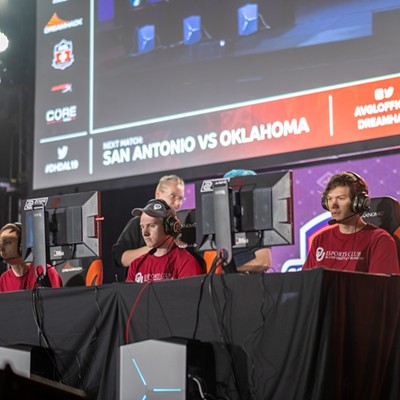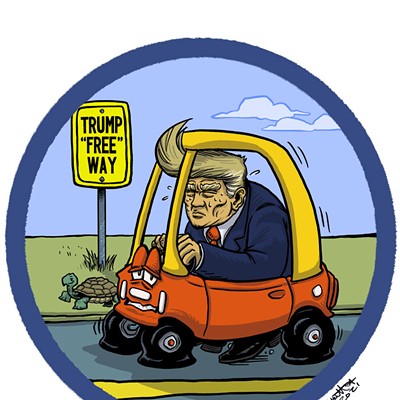
Keith Cressman, pastor of St. Mark’s United Methodist Church in Bethany, learned the religious liberty suit will return to U.S. District Judge Joe Heaton’s courtroom after state Attorney General Scott Pruitt elected not to appeal a higher court’s decision. In June, the 10th U.S. Circuit Court of Appeals ruled that Heaton made a mistake when he threw out the suit.
According to Cressman’s attorney, Nate Kellum, the lawsuit contends that the Native American image on the Oklahoma plate, which allegedly depicts a religious ritual, forces his client to be a “mobile billboard” for pagan religion.
The image is from a famous “rain god” sculpture, Sacred Rain Arrow, that sits outside the Thomas Gilcrease Museum in Tulsa.
Created by sculptor Allan Houser, the statue depicts a Chiricahua warrior shooting an arrow into the sky as a prayer for rain.
Diane Clay, Pruitt’s director of communications, said a Sept. 6 status meeting will help determine the schedule for the lawsuit as it moves forward.
Clay said that Pruitt’s office will file a motion for summary judgment in hopes of avoiding a full trial.
In an email sent to his congregation after the appeals court ruling, Cressman wrote that the lawsuit was personal and did not involve the church.
He also said his suit was not an attack on Native American “religion, culture or belief.”
Finally, he stated his rationale for his lawsuit:
“(T)he case presents legal issues of freedom of speech and religion that I feel are important for all Americans of all religious, non-religious and ethnic backgrounds,” Cressman wrote.
“The case may help define personal liberties and freedoms protected by the Constitution of the United States.”
Some non-Judeo-Christian and atheist groups also supported the court’s decision as a gain for the separation of church and state.
Hemant Mehta, author and board member for the humanist-based Foundation Beyond Belief, wrote of the ruling:
“If this image goes too far, then surely a cross or other religious symbol can’t be allowed on a license plate, either. A devout Christian may have done a huge favor to all of us who support church/state separation.”
However, the 10th Circuit did not side with Cressman’s overall complaint.
Rather, the three-judge panel ruled that he presented sufficient evidence that the image presented a “particularized message that others are likely to understand and to which he objects.”
Calling his claim a “plausible compelled speech claim,” the court sent the lawsuit back to Heaton.
Pruitt’s office had options to appeal for a full appeals court hearing, to appeal to the U.S. Supreme Court or to allow the lawsuit to return to Heaton’s court.
Pruitt allowed the first two deadlines to lapse, thereby sending the lawsuit back to Heaton.
In answers filed to the original complaint, Pruitt denied all of Cressman’s substantive allegations, a typical response in a legal answer, according to Kellum.
Cressman claims harm in the suit, meaning he was forced to pay extra for a vanity plate without the Native American imagery.
Nevertheless, Kellum said the lawsuit is not a tort claim, even though Pruitt offered an affirmative defense citing tort claim statues in his answer.
“This is a religious liberty issue, not a tort claim, and this case has always boiled down to Mr. Cressman’s right not to say what he does not want to say,” Kellum said.











